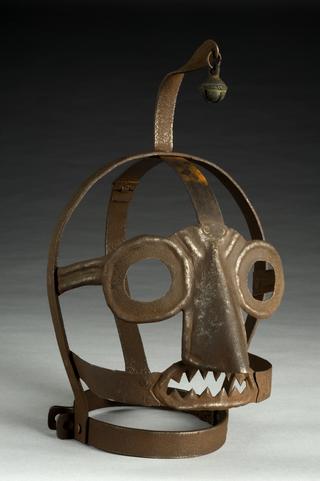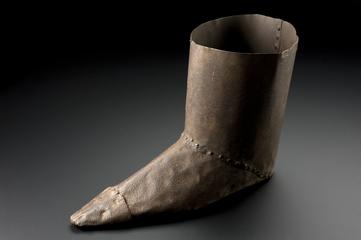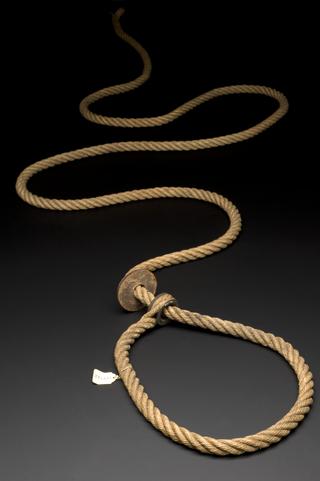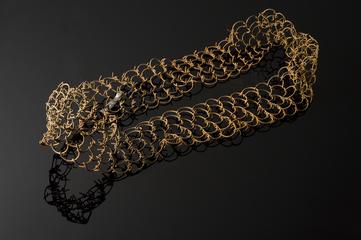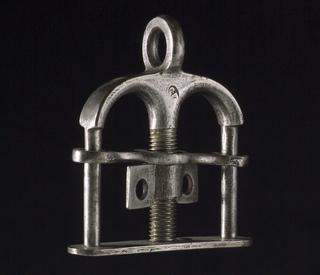
Marey's Camera for Chronophotography
- maker:
- Étienne Jules Marey











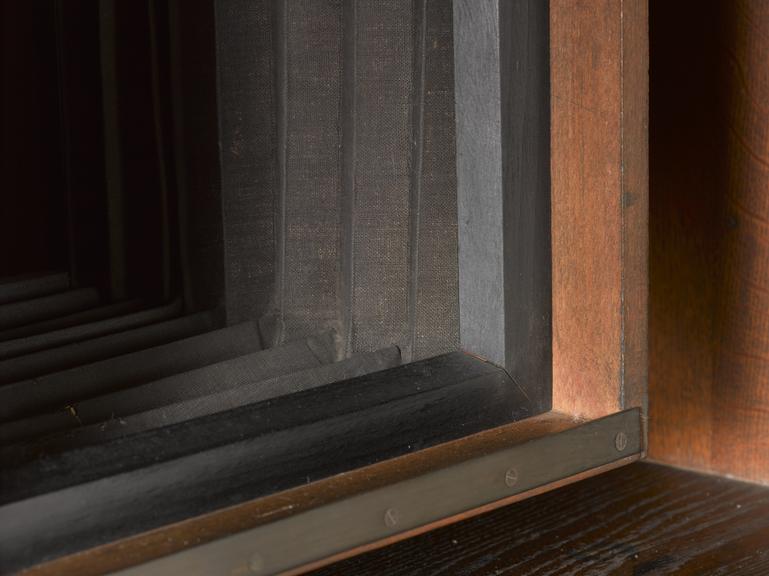
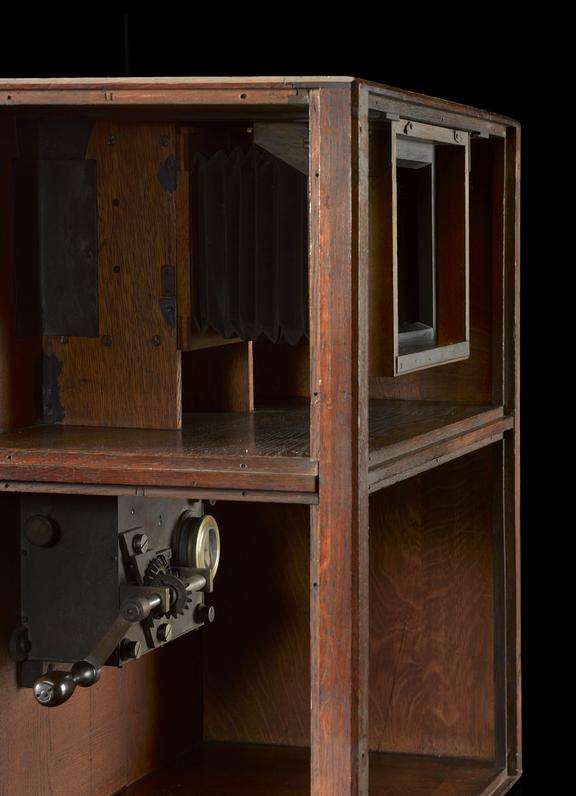








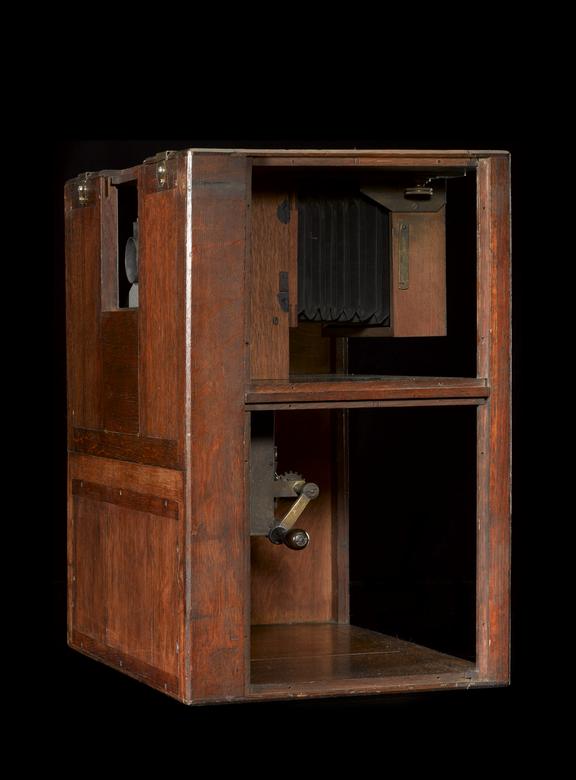
Camera for chronophotography on a fixed plate invented by Étienne-Jules Marey, about 1882.
This was one of the first cameras that Marey used to record sequential images of a moving subject on a single photographic plate. The subjects were photographed against a black background, sometimes in a black outfit with white or reflective lines along their limbs so that their movement could be analysed more easily. The slitted rotary shutter is driven by means of the crank handle. As each slit in the shutter passed the lens an exposure is made on the plate. Behind the lens is a fairly conventional bellows camera arrangement. The plate was placed in the back of the camera which could be moved away or towards the lens for focussing.
Marey published these images intending to aid other physiologists in their work. They also inspired contemporary artists seeking a new approach to modern vision, from Italian futurists to French cubists. Marey’s method anticipated the motion-capture technology essential to modern films, which create animated characters based on human actors.
Details
- Category:
- Wellcome (general)
- Collection:
- Sir Henry Wellcome's Museum Collection
- Object Number:
- 1980-682
- Materials:
- mahogany (wood), brass (copper, zinc alloy) and steel (metal)
- Measurements:
-
overall: 570 mm x 540 mm x 360 mm,
- type:
- chronophotographe
- credit:
- On loan from the Wellcome Trust

